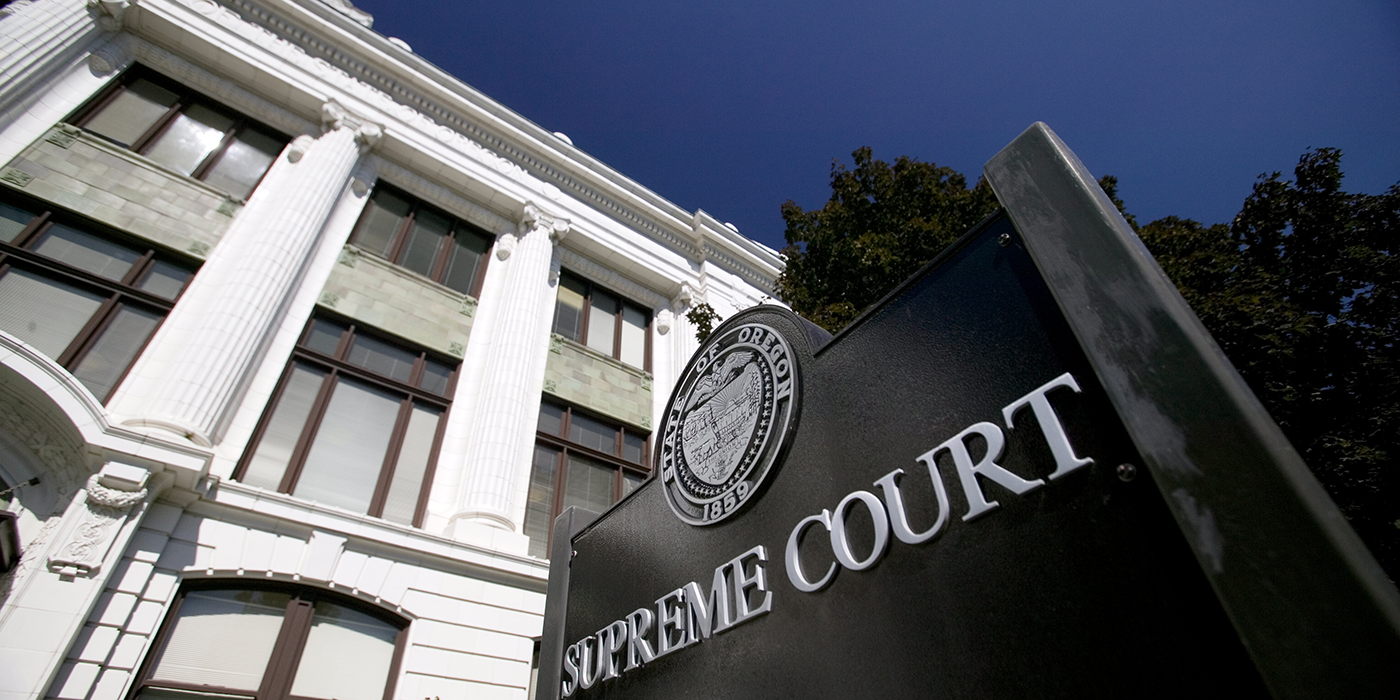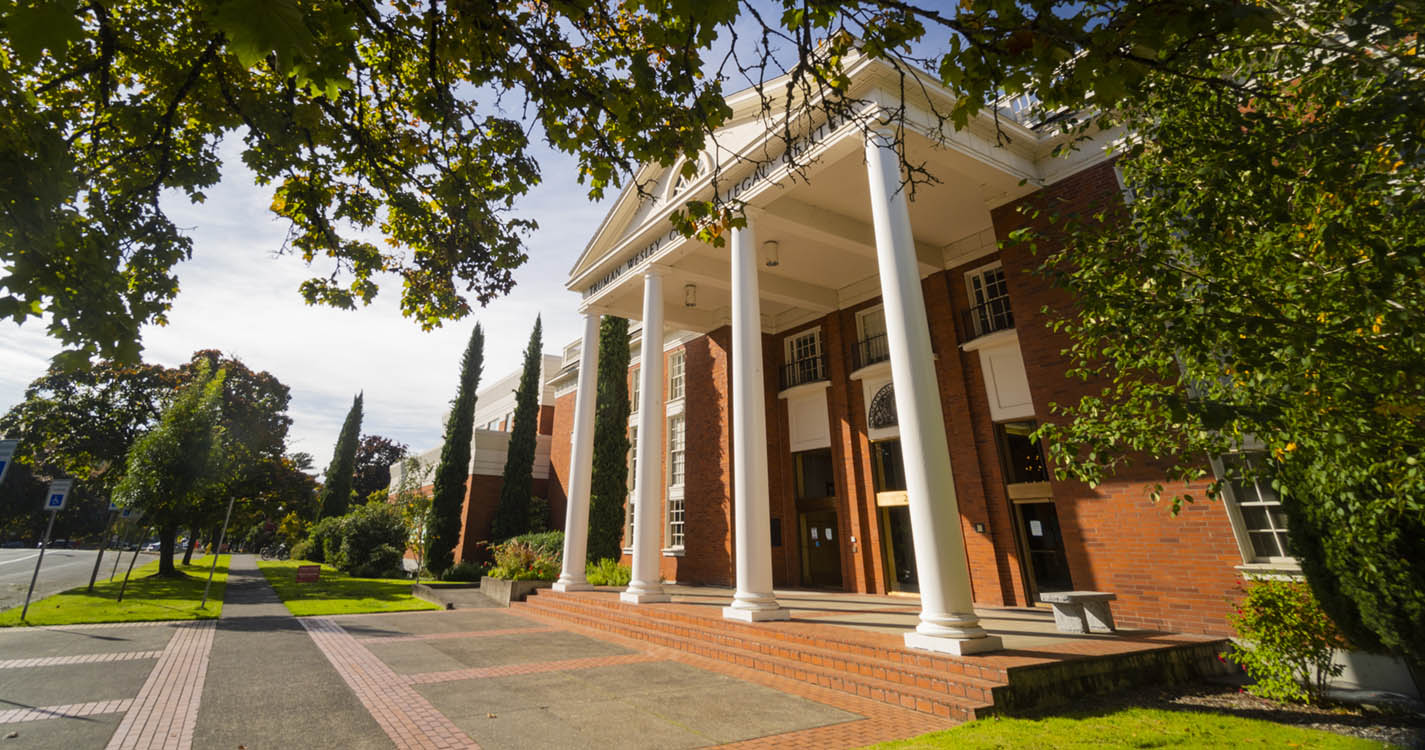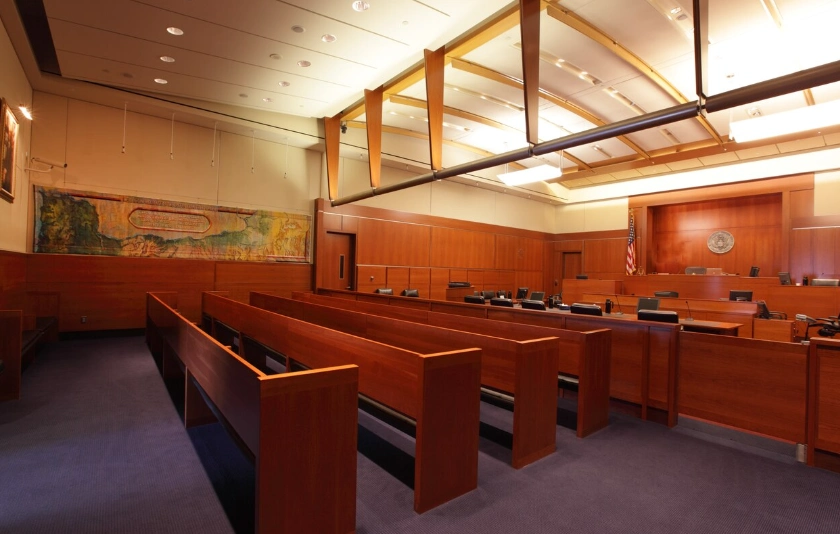SALEM, Ore. — At a public hearing Tuesday afternoon, the Oregon Supreme Court unanimously expressed approval in concept of two alternative pathways to the traditional bar exam and tasked the Board of Bar Examiners to assemble a committee to develop the details for implementation and consideration by the Court in the coming months. In anticipation of opening these pathways for law students, Willamette Law announced that it will hire a cluster of new faculty in the next two years to enhance and expand experiential learning in the curriculum.
“We are proud to be at the forefront of this continuing evolution in legal education and attorney licensure,” Willamette Law Dean Brian Gallini announced. “Oregon’s work in this space creates a historic opportunity to expand our already distinguished faculty in order to accelerate our transformation into the Northwest’s leading law school in experiential learning.”
The Oregon Supreme Court’s vote to support, in concept, alternative pathways to licensure emerged after over a year of intensive study and consultation. The initiative effectively began in the fall of 2020 when, at the court’s request, an Alternatives to Exam Task Force formed to explore additional long-term alternatives to the bar. Spurred in part by the court’s summer 2020 grant of one-time diploma privilege to that year’s class, the work of the Task Force included contributions and feedback from over 28 members representing affinity bars, government institutions, Oregon law school representatives, law students, and liaisons from the court.
In July 2021, the court first reviewed an extensive report from the Alternatives to Exam Task Force recommending an experiential learning pathway to licensure and, separately, a supervised practice pathway. For law school graduates who still wish to take it, the court preserved the traditional Uniform Bar Exam (UBE) as an option. All three pathways ultimately require an “examination” of the applicant’s work by the board. The Task Force’s recommendations built on extensive empirical work from the Institute for the Advancement of the American Legal System suggesting that both consumer protection and equity could be advanced by developing alternative approaches to licensure.
The court’s consideration of the Task Force’s recommendations followed a lengthy public process. After receiving the Board of Bar Examiners’ recommendations last July, the court held a public hearing to consider them. Following the hearing, the court invited and received public comments on the proposed alternative pathways. At the close of the public comment period, the court charged the Task Force to answer five core questions that emerged from the comments. On December 1, 2021, the Task Force voted unanimously to deliver a supplemental report to the court answering these questions, endorsing both alternatives to the bar exam in the process.
Reflecting on the Task Force’s reports and recommendations, Dean Brian Gallini, a member of the Task Force, explained there has been a “tremendous and historic shift in the thinking around attorney licensure.” Now, with the court’s support, and the cluster hiring initiative, Gallini said that Willamette Law will turn its attention to supporting implementation of these changes to prepare new lawyers.
“Willamette alumni have already proven that there are other ways for law school graduates to demonstrate their readiness to practice law,” he reflected. In 2020, after receiving emergency diploma privilege, nearly 20 new graduates used what would have ordinarily been bar-study time and effort to review the role of peremptory challenges and bias in the jury selection process for the Oregon Supreme Court. “The creation of their 40-page report required a high level of legal competency and contributed real thinking to the system of law — a more meaningful, practical test than the bar,” he said.
With the Oregon Supreme Court’s ruling, the Oregon State Bar, the Board of Bar Examiners and law schools will next have the opportunity to collaborate and shift curricula to accommodate the new pathways.




